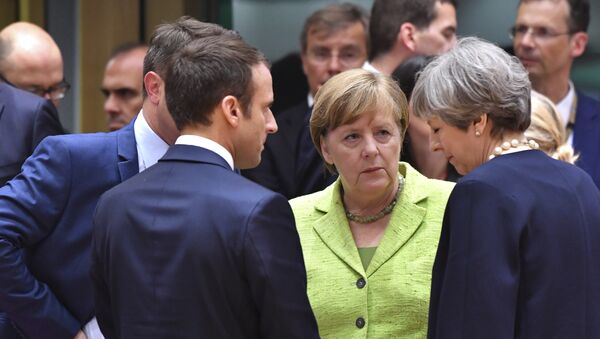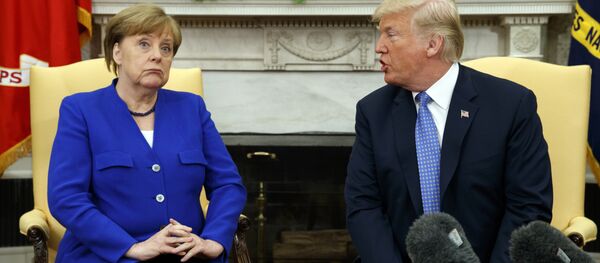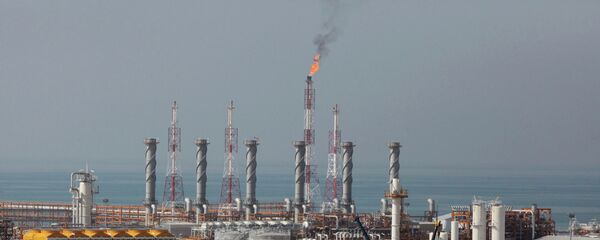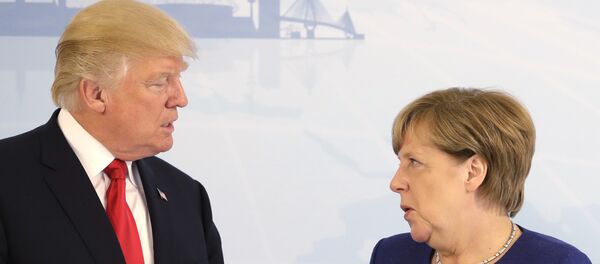EU businesses are bending to Washington's will regardless of vocal displeasure from Brussels and major European capitals' over the resumption of anti-Iran sanctions by Donald Trump.
"Looking at latest decisions of Donald Trump someone could even think: with friends like that who needs enemies. But frankly, EU should be grateful. Thanks to him we got rid of all illusions. We realize that if you need a helping hand, you will find one at the end of your arm," European Council President Donald Tusk tweeted on May 16, following Trump's decision to pull out of the 2015 Joint Comprehensive Plan of Actions (JCPOA), commonly known as the Iran nuclear deal.
Trump's withdrawal led to the resumption of anti-Iran sanctions: The US Treasury Department announced that new business transactions with Iran will be blocked, allowing foreign firms to revoke their existing contracts with Tehran in 90-day and 180-day period.
While Brussels is mulling over amending its Blocking Statute to include the US Iranian sanctions in order to shield European companies, a number of the Old Continent's corporations have signaled their plans to wind down business projects with Iran. Thus, Denmark's Maersk Tankers, Germany's Allianz and French oil giant Total said that they were ready to halt their work in the country by November 2018.
"Despite the EU countries' harsh rhetoric, nothing indicates their willingness to enter into a conflict with Washington," notes Sputnik contributor Igor Gashkov. "In recent decades, the US purchases much more goods in Europe than exported in return. The US foreign trade deficit with the EU reached $146.7 billion [in 2016]. The dependence of Europeans on exports to the US makes them extremely appeasable."
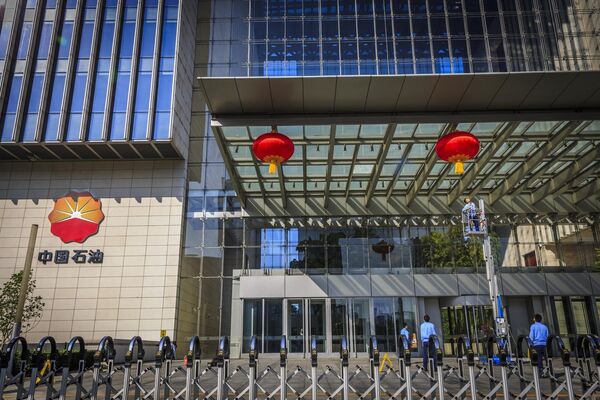
China to Occupy Niches Left by European Companies
It is highly likely that China will jump at the opportunity to occupy niches left by European companies, Vladimir Sazhin, a researcher at the Institute for Oriental Studies of the Russian Academy of Sciences, suggests.
"Since 1979, Iran has been existing under US sanctions, and all this time, China has been beefing up its economic presence in the country," the academic told Sputnik. "Beijing has never agreed with the [Iran] sanctions and played its own game. As a result, [the Sino-Iranian] turnover has reached $50 billion dollars, and after the departure of Europeans, the positions of Chinese businesses will improve."
A Sputnik source in the Iranian Ministry of Petroleum has revealed that the state-owned China National Petroleum Corporation (CNPC) is seeking to buy Total's share in the Iranian South Pars gas field in the Persian Gulf in case the French company pulls out.
The two companies have been jointly working on the field since 2017, initially envisaging investing $4.8 billion over 20 years. Total and the CNPC own 50.1 percent and 30 percent stakes, respectively. The Islamic Republic of Iran's Petropars holds the remaining share.
EU to Suffer Losses Due to US-led Unipolar Order
Tehran is dissatisfied with EU firms' withdrawal from the Iranian market. The country's Foreign Minister Mohammad Javad Zarif stressed that it contradicts the Iran nuclear deal, while speaking with the EU energy chief Miguel Arias Canete in Tehran.
"The announcement of the possible withdrawal by major European companies from their cooperation with Iran is not consistent with the European Union's commitment to implementing (the nuclear deal)," Zarif said, as quoted by IRNA.
"Since the 1940s Washington's foreign policy has been based on the principle of the superiority of force," Mehrabi opined, stressing that on this very basis the White House gains benefits and privileges at the expense of other countries.
The political scientist emphasized that under the present world order, Washington is playing the role of a "guarantor of trade, financial and military organizations in the field of international relations."
Abdullah Mehraban, a foreign policy analyst at the Faratab think tank in Iran, believes that after Washington's pullout of the Iran nuclear deal, transatlantic relations have entered into a critical phase.
However, despite Trump having brought the US-European ties to a severe test, it is unlikely that Europe will turn its back on Washington, the analyst noted, citing close political, economic and cultural connections between North America and the Old Continent.
The views of the contributors do not necessarily reflect those of Sputnik.

